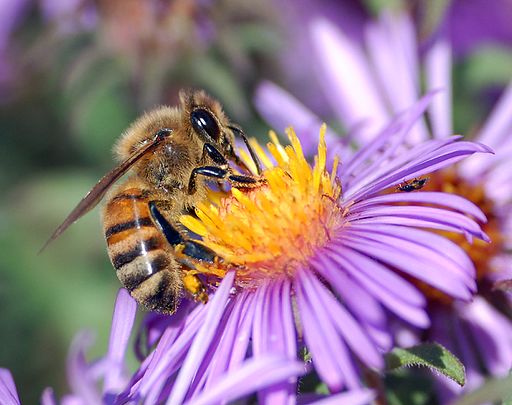
Could You Be A Friend To Bees?
Why We Need Bees
The sight of bees flitting gently amongst flowers is one of nature’s delights. The behaviour of these tiny insects might appear insignificant, but actually it has an immensely positive impact on our planet. As bees seek out nectar to turn into honey, pollen sticks to their fur and is transmitted from one flower to another. This process of pollination enables a huge variety of plants, both cultivated and wild, to reproduce. In fact, ‘Three out of four crops across the globe producing fruits, or seeds for use as human food depend, at least in part, on bees and other pollinators’, according to the United Nations. Bees therefore play a vitally important role in maintaining our ecosystem, providing food, and supporting sustainable agriculture. In the twenty-first century we need rhem more than ever, to help us combat poverty and hunger worldwide.
What Is World Bee Day?
In 2014, the Slovenian Beekeepers’ Association began campaigning for May 20th to be designated World Bee Day, and in 2017 the United Nations formally declared it so, with 115 countries becoming major sponsors. The date of May 20th was chosen because it marks the birth date of Anton Janša, who pioneered apiculture – or beekeeping – in the 18th century and was a great expert in the field.
Not only is World Bee Day a celebration of bees by environmentalists throughout the world, it’s also an opportunity to educate others about the critical importance of bees for our planet, and above all to call for change. The global bee population is under threat. We need to take action to protect bees, and to reverse their decline.
What You Can Do To Help
Everyone can do something to help bees. Here are some suggestions:
Get Gardening: aim to plant a wide variety of flowering plants, don’t use pesticides in your garden, and leave a shallow bowl of water outside for insects to access.
No Mow Month: during the next month, don’t mow your lawn, so that wild flowers can grow; they will provide nectar and pollen for bees.
Go Local: if you like honey, try to buy raw honey from local farmers rather than from supermarkets.
Contact Your Council: ask your local council to plant wildflower meadows and allow grass verges to grow naturally, so that wild flowers can flourish.
Spread The Word: share information and ideas about protecting bees with your family, friends and local community.
Out And About: participate in a World Bee Day event near you. The British Beekeepers’ Association website has more details of events around the country.
So, to mark World Bee Day on 20th May, what will you do for bees? For further information about World Bee Day, and the chance to test your knowledge of bees with a quiz, visit the website of the Food and Agriculture Organization of the United Nations.